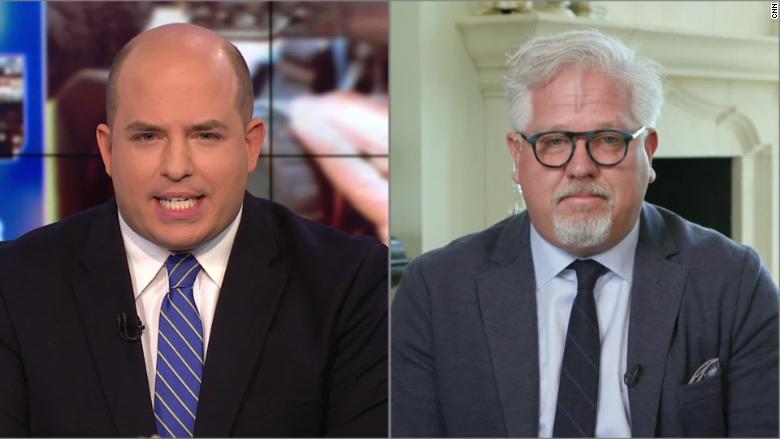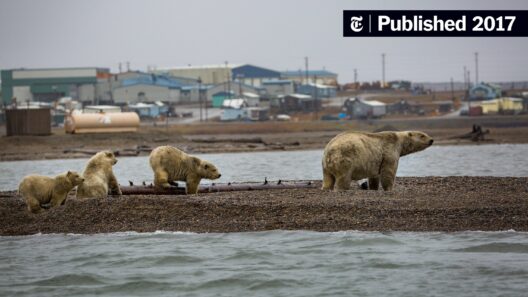As the discourse surrounding climate change continues to evolve, figures like Glenn Beck have become emblematic of the variegated landscape of beliefs that exist within public rhetoric on environmental issues. With a career that has shifted from a straightforward radio host to a pivotal voice of conservative media, Beck’s stances on topics such as global warming have captured attention and stirred debate. This article will delve into Beck’s perspective on climate change, exploring his influences, public statements, and the broad implications of his views on the media landscape.
To understand Glenn Beck’s position, it is crucial to contextualize his philosophy within a larger framework of skepticism that has been historically prevalent among certain media figures and political groups. Beck has often framed global warming as a hoax—an elaborate construct propagated by a politically motivated elite. This skepticism, while not unique to Beck, reflects a broader narrative often aimed at discrediting the scientific consensus around anthropogenic climate change.
The genesis of Beck’s climate skepticism can be traced to a distinct ideological foundation, which privileges individual freedom and economic liberty above environmental regulation. He presents a narrative where environmental policies are equated with governmental overreach, portraying climate science as a mechanism for control rather than a legitimate field of inquiry aimed at safeguarding the planet. Beck’s rhetoric often downplays the urgency of climate action, suggesting that alarmism surrounding global warming is unwarranted and driven by a hidden agenda.
Throughout his career, Beck has employed a blend of emotive storytelling and conspiratorial rhetoric to attract an audience. This approach resonates well with viewers who are predisposed to distrust scientists and policymakers. For Beck, the climate debate is not just a scientific issue; it is a battle for the soul of American identity—pitting autonomy against collectivism.
This perspective isn’t merely isolated to Beck; it is symptomatic of a larger media apparatus that disseminates climate skepticism. By utilizing platforms such as television and social media, Beck has amplified his message, framing global warming as a contested narrative rather than an established fact. He often engages with guests and experts who reflect his views, creating a feedback loop which further entrenches skeptical beliefs among his audience.
Beck’s assertions have, however, been met with substantial pushback from both the scientific community and advocates for climate action. A salient point in the climate debate is the overwhelming consensus among climate scientists regarding the reality of global warming. This consensus is supported by extensive research and data illustrating the accelerating impacts of climate change, from rising sea levels to intensified weather events. Despite this, voices from the media realm, including Beck, perpetuate narratives that question this scientific foundation, often leading to confusion and misinformation among the public.
An exploration of Beck’s media strategy reveals that his stance on climate issues is intentionally provocative. By positioning himself against the mainstream scientific discourse, he not only garners attention but also stirs conversation, ensuring that his viewpoints remain in the public eye. This strategy has the potential to sway opinions, particularly among audiences with limited access to scientific education or those already inclined to skepticism.
Moreover, the implications of Beck’s rhetoric extend beyond mere opinion; they can shape political agendas and hinder legislative progress aimed at combating climate change. When influential figures propagate skepticism, they can embolden policymakers to resist necessary measures for environmental regulation. This dynamic raises critical questions about media responsibility and the power of narrative in shaping public understanding and policy around climate change.
However, it is also essential to recognize that perspectives can evolve. Over the years, several individuals in media and politics have shifted their positions on climate change, prompted by changing scientific consensus, public opinion, and observed environmental impacts. Beck’s past rhetoric suggests a firm stance against the realities of global warming, yet as the world experiences increasingly severe climate-related phenomena, there may exist potential for transformation even within those who have vehemently opposed climate action.
As the climate crisis intensifies, the discourse will undoubtedly evolve. The pivotal role of influential media figures makes it imperative to engage critically with their narratives. Observers of the climate debate must remain vigilant, deconstructing the arguments put forth by figures like Beck while also seeking to educate audiences about the implications of climate change as supported by scientific evidence.
In conclusion, Glenn Beck’s position on global warming exemplifies a broader trend of skepticism that endures within parts of the media landscape. His assertions challenge the established scientific consensus and are indicative of a narrative that prioritizes ideological allegiance over empirical facts. Yet, this skepticism also serves as a call to action for advocates of climate action—to foster understanding, counter misinformation, and ultimately work towards a collective vision of a sustainable future. The shifting tides of public opinion and the evolving discourse around climate change may yet illustrate the power of informed dialogue in shaping societal perspectives on one of the most pressing issues of our time.





